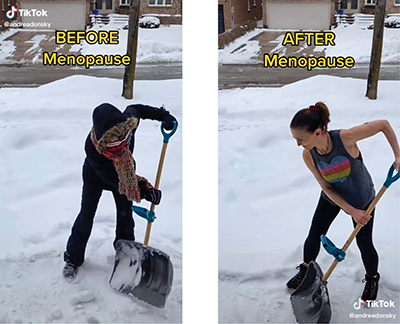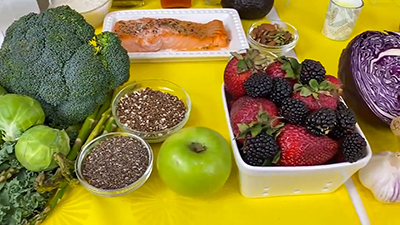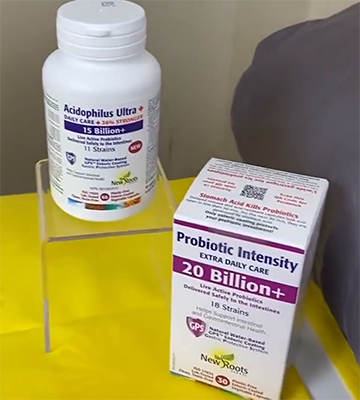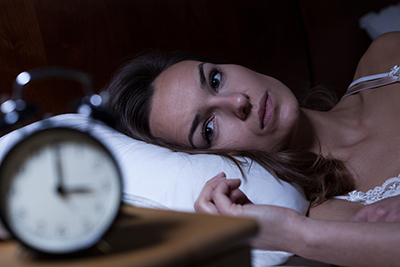Natural Ways to Relieve Menopause Symptoms
As Seen on CityLine
By the year 2025, 12% of women worldwide will be in menopause. Eighty-five percent of these women will experience menopausal symptoms, with over 10% having debilitating symptoms interfering with their daily lives. Our resident nutritionist, Andrea, is experiencing the symptoms firsthand and is on a mission to share natural strategies for symptomatic relief.
Tracy: I know you have been spending a lot of time understanding and researching everything you can about perimenopause and menopause. What inspired you?
Andrea: First, I am in menopause myself, so I really want to understand everything about it. In addition, it is still very much a taboo topic, so my team and I want to change that. Over the last four and a half years, we discovered that there are over 85 signs and symptoms of menopause, and we are going to talk about some of the more common ones, such as hot flashes, night sweats, weight gain, mood swings, anxiety, and sleep issues.
Tracy: According to statistics, 75% of women in perimenopause and menopause experience hot flashes and night sweats. You illustrated this exceptionally well on your TikTok feed—too funny! What tips do you have to help minimize hot flashes and night sweats?
Andrea: Yes—I am making fun of it because if I did not, I would probably cry. I suffered from hot flashes and night sweats for so many years… It is so debilitating! Some lifestyle and diet things that helped me were really reducing or eliminating my triggers. For example, caffeine, chocolate—unfortunately—alcohol, spicy foods, and sugar, for some women, trigger those hot flashes. The other thing I learned was to manage my stress levels, because stress can trigger hot flashes and night sweats. Deep breathing, walking in nature, exercising—anything that stimulates the parasympathetic nervous system to help us relax better.
“A hot flash is a sudden feeling of heat and warmth, and can be accompanied by a red flushed face and sweating.”
 Wearing breathable clothing and always dressing in layers for those times that you start to get warm, you can just take some off. Washing dishes with hot water can also trigger hot flashes. Of course, as a nutritionist, I recommend a whole-food diet, and stay away from sugar and ultraprocessed foods which mess with blood-sugar levels.
Wearing breathable clothing and always dressing in layers for those times that you start to get warm, you can just take some off. Washing dishes with hot water can also trigger hot flashes. Of course, as a nutritionist, I recommend a whole-food diet, and stay away from sugar and ultraprocessed foods which mess with blood-sugar levels.
Tracy: Very interesting! So, managing blood-sugar levels can help here?
Andrea: It really can—research shows that women who have higher blood-sugar levels have more hot flashes. Estrogen and progesterone levels decrease during menopause, which makes our cells less responsive to insulin. This can lead to weight gain and insulin resistance, which is a step before type 2 diabetes. It is crucial, during menopause and perimenopause, that we balance our blood-sugar levels. When our blood sugar spikes, insulin spikes, which paves the way for weight gain. One of the ways that we can do that is make sure we get enough protein, which is excellent for energy. Also, fat has zero implication on blood-sugar levels, so make sure you are getting those good fats like olive oil, avocado oil, or Malaysian palm-fruit oil. Fibre is also excellent: Aim for 25–40 g of fibre per day. Fibre slows down the absorption of sugar into our bloodstream and prevents those spikes. If you are going to eat fruits, make sure they are less-sugary fruits, like green apples and berries.
 “If you are experiencing hot flashes and find you sweat a lot, moisture-wicking fabrics are a smart, practical choice.”
“If you are experiencing hot flashes and find you sweat a lot, moisture-wicking fabrics are a smart, practical choice.”
Tracy: What about anxiety and mood-related symptoms? What can you tell us about those?
Andrea: I suffered from mood symptoms for so long, from happy to sad to angry and irritated, all within minutes of each other. One of the things that helped me was balancing my blood-sugar levels, but also taking care of my microbiome. We know from research that our gut is connected to our brain: When one is upset, so is the other. Choose probiotic-rich foods, like fermented foods—kimchi and sauerkraut—or you can supplement with probiotics.
 Look for one with enteric coating to avoid destruction by harsh stomach acid. Managing stress levels, exercising—even if it is for a walk around the block—and eating gut-friendly foods, like garlic, ginger, Brussels sprouts, and olive oil can all help.
Look for one with enteric coating to avoid destruction by harsh stomach acid. Managing stress levels, exercising—even if it is for a walk around the block—and eating gut-friendly foods, like garlic, ginger, Brussels sprouts, and olive oil can all help.
“On average, women gain 10 to 15 pounds during menopause because of fluctuating hormones and other factors like loss of muscle mass.”
Tracy: Let us talk about sleep… Why is sleep such a big issue for menopausal women, and what can we do to help that?
 Andrea: It is one of the top complaints, up there with hot flashes. It is really tough. Women are having trouble sleeping—whether it is insomnia or waking up at 3 a.m. from cortisol spiking at the wrong time, or night sweats, or going to the bathroom multiple times a night. Keeping the bedroom cool—like 65 to 68 °F [18–20 °C]—or using ice packs; believe it or not, putting them on your chest or behind your neck can really help.
Andrea: It is one of the top complaints, up there with hot flashes. It is really tough. Women are having trouble sleeping—whether it is insomnia or waking up at 3 a.m. from cortisol spiking at the wrong time, or night sweats, or going to the bathroom multiple times a night. Keeping the bedroom cool—like 65 to 68 °F [18–20 °C]—or using ice packs; believe it or not, putting them on your chest or behind your neck can really help.
“When it comes to mood and anxiety, 90% of our serotonin is made in our gut, so focusing on gut health is crucial for managing these two symptoms.”
I also use a cooling blanket: It is a weighted blanket that wicks away moisture and hugs our nervous system to help us relax. Cooling PJs with similar technology can also keep us dry while looking great. I also recommend ʟ-theanine about 30 to 40 minutes before bed, as it is an amino acid proven, in over 90 clinical trials, to help calm us, giving us that better night sleep. This calm state will last eight to ten hours.
“Sleep disorders affect up to 47% of perimenopausal women and 60% of menopausal women.”
 Andrea Donsky, RHN
Andrea Donsky, RHN
Andrea Donsky is a Registered Holistic Nutritionist and founder of NaturallySavvy.com—a multiple award-winning website. She has 21 years of experience in the health and wellness space, and is a multiple award-winning influencer. Her newest venture—wearemorphus.com—helps women in perimenopause and menopause. Follow Andrea on TikTok and Instagram @andreadonsky.
naturallysavvy.com

 Stores
Stores